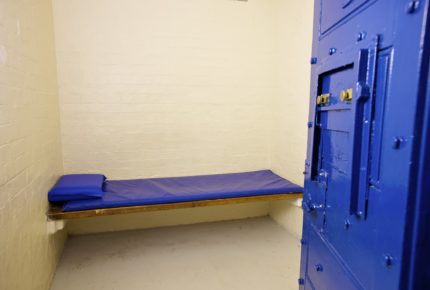

Have you been arrested and released on police bail? If so, you are probably feeling anxious and uncertain. You might well be asking yourself exactly what police bail means, and most importantly, what could happen next in your case and when. This article gives an overview of police bail, and what police bail means for you. We look at whether there are time limits on police bail, and what happens if you are refused bail. We also explain what could happen if you are granted bail but fail to report to the police station on the date stated on the charge sheet.
What is police bail?
Police bail is where the police, having interviewed you, release you back into the community. You can be given police bail whether or not you have been charged with an offence.
Sometimes bail will be given with conditions. Examples of conditions include that you are required to live at a certain address, that you must surrender your passport to the police station, or that you must regularly report to the police station. Bail conditions can also include that you are not allowed to have contact with a particular person. Often, contact will be restricted between the suspect and their co-defendants, and between the suspect and the alleged victim of the crime.
These days, the police often release suspects on bail pending further investigation. This is also known as being released under investigation (RUI). Rather than reporting regularly to the police station, a suspect released under investigation will just be given a specified date to return to the police station. In these circumstances, you are unlikely to be given bail conditions. However, you will still be warned that inappropriate contact with anyone linked to your case would constitute a criminal offence. Usually, the police are not permitted to bail someone for more than 28 days; however, where you are released under investigation, the 28 day time limit on bail does not apply.
What does it mean if you are released on police bail?
You can be released on police bail in a variety of different circumstances.
Pre-charge bail can occur where:
- There is insufficient evidence to charge you (Sections 37(2), 34(2) and 34(5) of the Police and Criminal Evidence Act 1984 (PACE)).
- It is no longer necessary to detain you to preserve evidence or to interview you, but the police are not yet in a position to charge you.
- There is sufficient evidence to charge you, but the police are obliged to refer the matter to the Crown Prosecution Service (CPS) for a charging decision. You are therefore released on bail whilst the CPS are making the charging decision.
Bail post-charge can occur where you are released on bail until your first appearance in the Magistrates’ Court. When you appear at court, you may be released on court bail or you may be remanded in custody.
It is important to seek advice from a criminal defence solicitor who will be able to advise you whether the court is likely to grant bail.
If you are refused bail at court, your criminal defence solicitor can help you prepare a bail application.
Does bail mean you have been charged?
Bail can be given both pre-charge, and post-charge, and as such, the fact that you have been given bail does not mean that you have been charged. Bail simply means that the police are still actively looking into your case; it could mean that the police are at the evidence gathering stage or it could mean that they are waiting for advice from the CPS. If you have been charged, the police are obliged to give you a charge sheet, which outlines the offences that you are alleged to have committed.
How long can the police keep you on bail?
The Police, Crime, Sentencing and Courts Act 2022, which came into force in August 2022, has now established a 3 month time limit for pre-charge bail. The aim of this change to the law was, according to Amber Rudd, to prevent ‘the injustice of people being left to languish on very lengthy periods of pre-charge bail.’
The time limit on bail applies where you are released on conditional or unconditional bail by the police. However, the time limit to bail does not apply in all circumstances. For example, if you are ‘released under investigation’, the 3 month limit does not apply.
There is another exception to the time limit for police bail if you have been charged with a case that is being investigated by the Director of the Serious Fraud Office. In these circumstances, the relevant time limit for bail is three months from the date of release on bail. However, the 28 day time limit applies to cases that are being investigated by the Financial Conduct Authority.
What happens when you’re out on bail?
Your time spent on bail will vary depending on which, if any, bail conditions you have been given. You must comply with your bail conditions. If you do not comply with your bail conditions, you could be arrested. You should always avoid any contact with any persons connected with your case including alleged victims, witnesses, and co-defendants; if you do contact any of these people, you may be charged with a separate criminal offence. You should also take extra care to ensure that you do not commit another criminal offence during your time on bail.
You may be required to live at a certain address and/or report to the police station at specified times. You may be forbidden from visiting specific locations such as the scene of the alleged crime. In addition, the police may ask you to hand in your passport at the police station to ensure that you do not attempt to leave the country.
Electronic tagging cannot be given on police bail. However, if you are charged, the court could give electronic tagging as a condition of court bail. The police will not ask for a surety (a sum of money to guarantee that you will not abscond). Again, this is a condition that can be given by the court for court bail, but not by the police.
What happens if you are refused bail?
If you are refused bail, you will be remanded in custody. The time limits for remand in custody pre-charge are set out in Section 41 of PACE, as amended by the Police (Detention and Bail) Act 2011. The police have the power to detain a suspect without charge for up to 24 hours.
After this, if they wish to detain the suspect for longer, Section 42 of PACE states that an officer of the rank of superintendent or above can authorise detention for up to a total period of 36 hours. This authorisation can only be given before the expiry of the first 24 hour period. The police should give the detained person or their legal representative an opportunity to make representations about the proposed further period of detention.
If, after 36 hours, the police still wish to detain the suspect without charge, they will need to make an application to court under Section 43 of PACE. This procedure can only be undertaken where the alleged offence is indictable; i.e. it is an offence that, if it went to trial, would be heard in the Crown Court. The application must be made by an officer of the rank of superintendent or above, who reasonably believes that:
- the detention of that person without charge is necessary to secure or preserve evidence relating to an offence for which he or she is under arrest or to obtain such evidence by questioning him or her;
- an offence for which he or she is under arrest is an indictable offence; and
- the investigation is being conducted diligently and expeditiously.
Should the court grant the warrant, the suspect can be detained for a maximum of a further 36 hours. This means their total period of detention pre-charge could be up to 72 hours.
What happens if you don’t report on bail?
If you fail to report on police bail, or the police reasonably believe that you have breached any other bail conditions, the police have the power to arrest you. This power of arrest is set out at Section 46A of PACE.
Once you have been arrested, the police will determine whether they can charge you. If the conditions for charge are met, you will be charged. If the conditions for charge are not met, you will be released again on bail, with the same bail conditions as before. Under Section 37CA of PACE, the police do not have the power to change your bail conditions pre-charge.
Where to get further help
If you have been released on bail, seek advice from a criminal defence solicitor as soon as you are able to. At Stuart Miller Solicitors, we are a friendly, efficient, and professional team, with many years of experience representing defendants in a wide range of criminal investigations. We will provide you with robust advice on your options and a realistic idea of what is likely to happen next in your case. Contact us for a no obligation consultation today.
(This page was last updated on November 15, 2023)
OUR COMMITMENTS TO YOU:
-
Responsive
A legal expert will consult you within 24 hours of making an enquiry.
-
Empathetic
We will always treat you with trust, understanding and respect.
-
Specialised
Your case will be handled by an expert who specialises in your type of offence.
-
Proactive
We will take early action to end proceedings as soon as it is practically and legally possible to do so.
-
Engaged
You will be kept updated on your case at all times. We will provide a named contact available to answer your questions.
-
Caring
We understand this is a difficult and stressful time for you and your family. Our team will support you every step of the way.
-
Tenacious
We will never give up on your case. We fight tirelessly to get you the best possible outcome.
